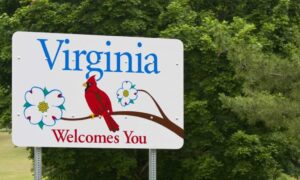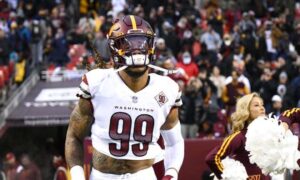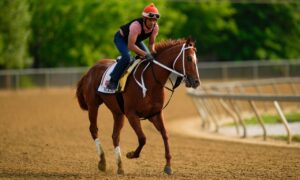
The owners of now-illegal VA skill games attempted a Hail Mary but were unable to reach the end zone.
As part of a planned shutdown on July 1, Virginia officially prohibited the utilization of gaming devices during the previous week.
Skill games are available in various formats, yet they bear resemblance to slot machines. Nevertheless, they incorporate a debatable element of “skill” within their gameplay. This permits the operation of these machines, commonly referred to as “gray machines,” within a legal gray area in convenience stores, bars, restaurants, and other small businesses across the commonwealth.
Some business owners sought assistance in the courts prior to the July 1 deadline set by Senate Bill 971, but unfortunately, one judge declined to provide any relief.
No legal relief for VA skill games
In the face of the COVID-19 pandemic, which compelled businesses to close in early 2020, Virginia legislators made the decision to grant skill games a temporary one-year exemption. Not only did they choose to regulate and levy taxes on these games, but they also collected around $100 million in revenue to fight against the coronavirus.
Some small-business owners in VA took action when they realized that the unofficial audition would not result in a permanent stay as they had hoped.
Hermie Sadler, a former NASCAR driver and owner of a truck stop in VA, has filed a lawsuit claiming that the removal of skill machines would significantly impact his financial earnings.
Next, the AABOA, a business association consisting of Asian American entrepreneurs in Roanoke, lodged a formal complaint with the Virginia Attorney General’s office.
The AABOA filed a petition for an injunction, requesting permission for the businesses to retain possession of the machines. The group argued that the ban exhibited discriminatory behavior, and further contended that it violated Virginia human rights law by unfairly singling out ethnic and religious minorities, who happened to own a significant number of these businesses.
However, as WAVY.com reported:
On Friday, in Norfolk Circuit Court, a judge rendered a decision denying a temporary injunction that would have allowed the games to continue. According to the opinion, the business owners failed to demonstrate any irreparable harm they would suffer, and it was not in the public’s best interest to lift the ban.
More legal challenges ahead?
Randy Wright, the former Norfolk councilman and a prominent advocate for business owners, provided a statement in the WAVY.com report.
He did not dismiss the possibility of future legal challenges in his statement.
“We are determined to persevere and actively pursue alternative solutions. Our pursuit of these options will not disregard the potential for additional legal avenues. Our intention is to have a significant impact on the forthcoming November election. The AABOA will lead an unparalleled grassroots campaign. We refuse to tolerate bigotry and discrimination against Asian Americans, and we will vehemently defend their rights while countering any defamatory remarks made by anyone!”
If businesses fail to adhere to the ban, they will be subjected to a penalty of $25,000 and will also have to surrender the funds present in their machines.
Virginia legislators have shown divided opinions on small-business owners, which is somewhat unexpected considering their usual sympathy towards them. This disparity can be attributed, in part, to the existing state of legal and regulated gambling in the commonwealth.
Since legal sports betting has been launched in Virginia and the first casinos are scheduled to open soon, Virginia skill games have somewhat been marginalized. Moreover, they have to contend with competition from the Rosie’s Gaming Emporiums spread across the state. Additionally, the historical horse racing (HHR) parlors provide similar slot-like gaming options.
Unless key Virginia officials provide more support, VA skill games are unlikely to have the opportunity to compete with the available legal options.







